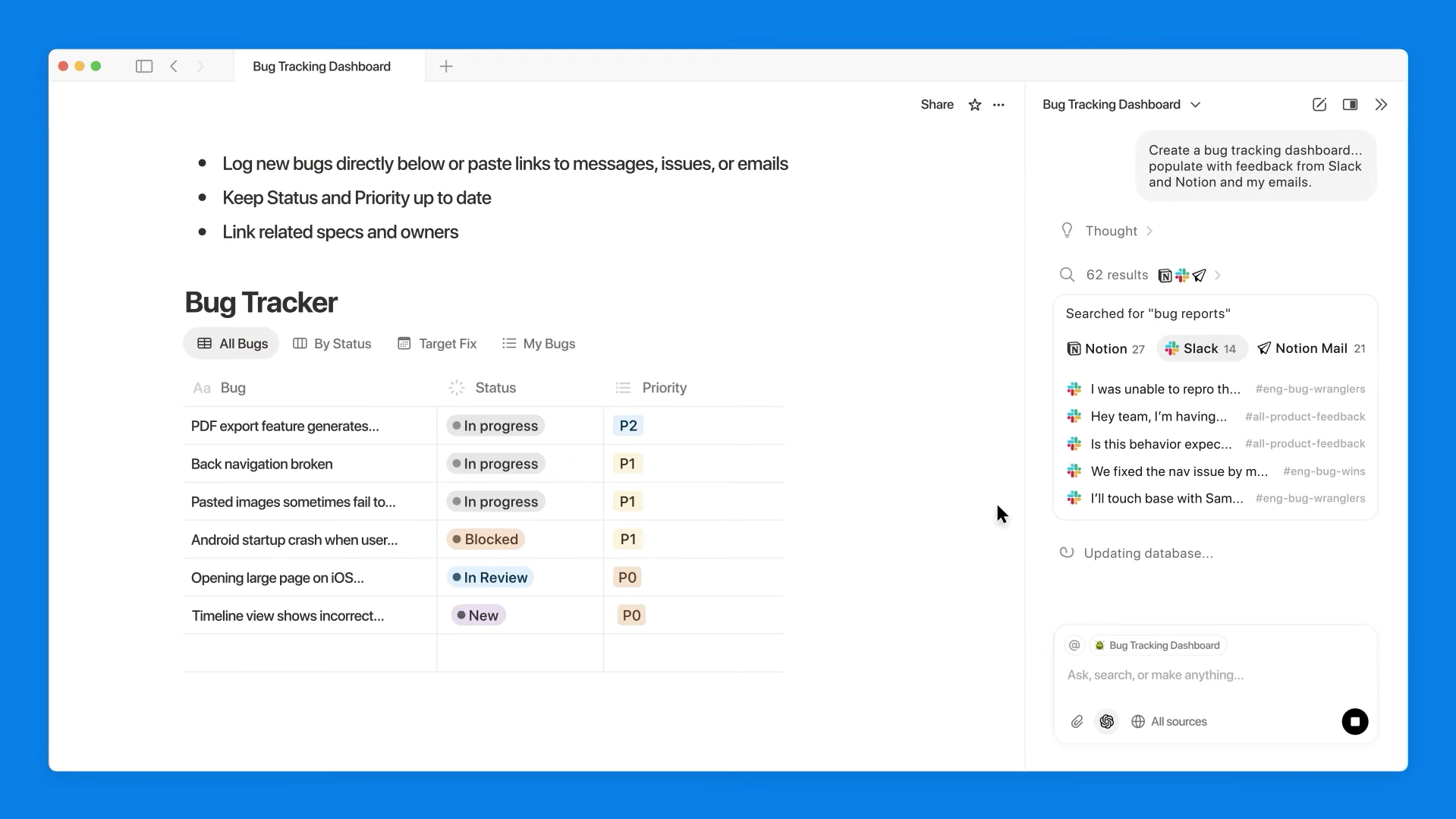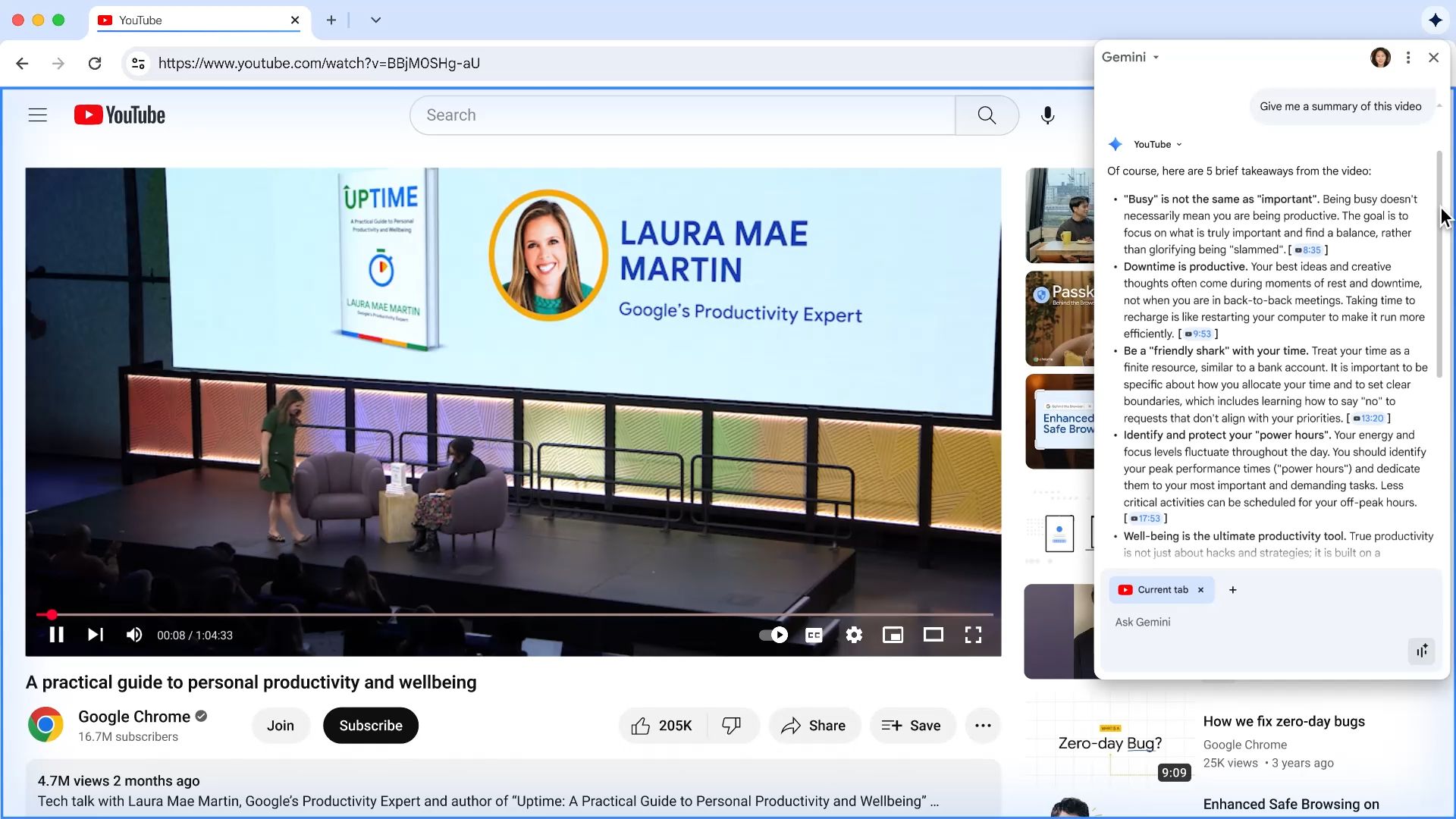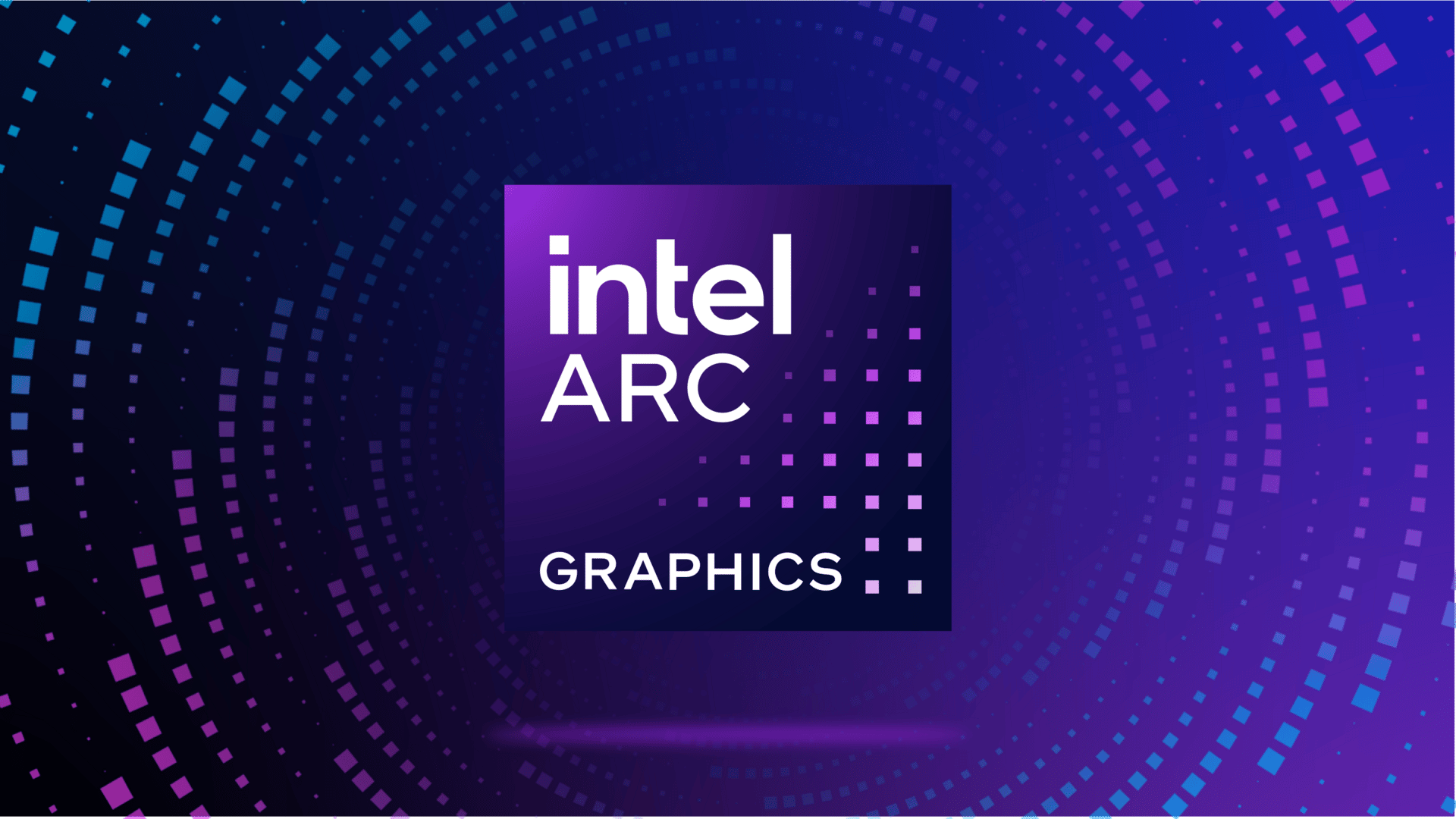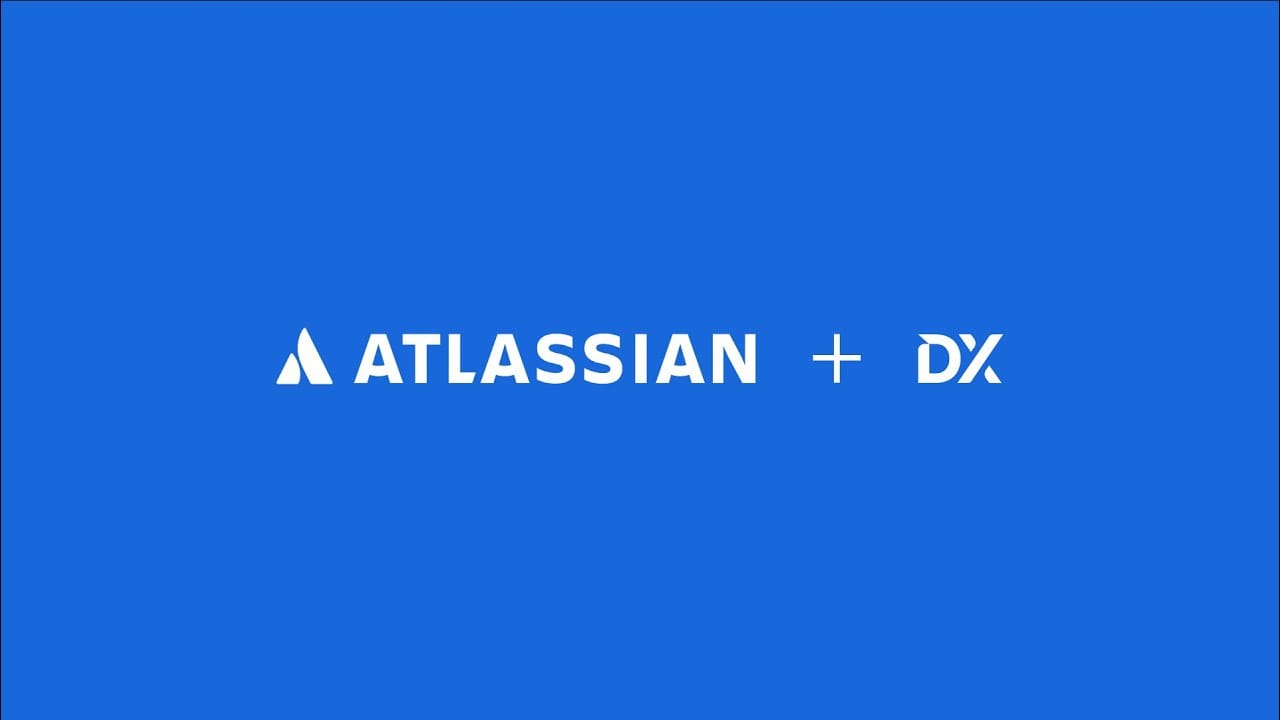- Tech Barista
- Posts
- Notion launches its first AI agent
Notion launches its first AI agent
The new tool pulls context from pages and platforms like Slack and Google Drive to generate reports update dashboards and create content automatically
☕ Good morning,
There's something satisfying about watching software finally grow up and start doing the work instead of just organizing it.
Notion building an agent that actually executes tasks across your entire workspace, Google weaving AI directly into the browser so it becomes part of how you think through problems - these feel like the moments when tools stop being tools and start being partners.
— It’s Saturday, read less and rest more!
TOOL BAR
Magiclight: Intelligent story creation agent that creates long videos
Luma AI: 3D render products, landscapes and scenes wherever you are
CREAO: Infinitely personalized software for every team member
TODAY IN AI
Notion launches its first AI agent

Image: Notion
Notion just took a big leap with AI. At its “Make with Notion” event, the company rolled out its first AI agent, a tool that doesn’t just summarize your pages but actually works inside them. It can pull context from all your notes, databases, and connected platforms like Slack or Google Drive to generate reports, update dashboards, or even create new pages automatically.
Think of it as Notion AI on steroids. Instead of just answering questions, the agent can handle multi-step tasks that run across hundreds of pages, like compiling competitor reports, analyzing meeting notes, or giving live feedback on a landing page. You can set up a profile page to tell it how to work, what style to use, and even what to “remember” for future tasks.
Right now, you’ll need to trigger it manually, but Notion says scheduled and automated agents are coming soon, along with a template library so you can drop in pre-made prompts. It’s the clearest sign yet that Notion wants to move from being your productivity tool to being your productivity teammate.
TECH BARISTA
Gemini AI to Chrome in the US

Image: Google
Google dropped a big update for Chrome, Gemini is now built right into the browser for U.S. desktop users on Mac and Windows. With this, you’ll be able to do more than just search. Gemini will soon help with summarizing content across multiple sites, finding pages you’ve visited before, and even handling multi-step tasks.
The integration is rolling out in English starting today, with iOS support coming soon and Workspace access for businesses in the weeks ahead. Google is also tying Gemini more closely into apps like YouTube, Calendar, and Maps, making Chrome feel less like a browser and more like a full AI assistant.
This move comes right after a court ruling let Google keep Chrome despite antitrust pressure but forced it to open up data access to competitors. With rivals like Perplexity building agentic browsers and even making a $34.5B offer for Chrome, Google’s push to embed Gemini feels like both a defensive play and a way to keep Chrome central to its AI strategy.
PRESENTED BY SUPERHUMAN AI
Go from AI overwhelmed to AI savvy professional
AI keeps coming up at work, but you still don't get it?
That's exactly why 1M+ professionals working at Google, Meta, and OpenAI read Superhuman AI daily.
Here's what you get:
Daily AI news that matters for your career - Filtered from 1000s of sources so you know what affects your industry.
Step-by-step tutorials you can use immediately - Real prompts and workflows that solve actual business problems.
New AI tools tested and reviewed - We try everything to deliver tools that drive real results.
All in just 3 minutes a day
GADGETS BARISTA
Intel may use Nvidia graphics in future CPUs

Image: Intel
Intel and Nvidia are teaming up in a way that could change how future chips look. Nvidia CEO Jensen Huang confirmed that Nvidia will supply “GPU chiplets” for Intel CPUs, meaning Intel processors could one day ship with Nvidia graphics built right in. That’s a big shift, since Intel has been pushing its own Arc graphics as the integrated option until now.
Intel insists this doesn’t mean Arc is dead, saying the Nvidia partnership is “complementary” and that it still plans to make its own GPUs. But the question is, for how long? Intel’s been cutting costs and selling off parts of its business, so continuing to go head-to-head with Nvidia and AMD on graphics may not be its top priority.
For now, Arc isn’t disappearing overnight, but if Nvidia’s chiplets deliver better performance at less cost, Intel might have little reason to keep spending billions chasing a fight it’s already behind in.
STARTUP BAR
Atlassian buys DX for $1B to boost developer productivity

Image: Atlassian
Atlassian just dropped a billion dollars to buy DX, a startup that helps companies figure out how productive their developers really are. DX isn’t about creepy surveillance-style tracking, it digs into both data and team feedback to show where things are slowing down. The crazy part that they’ve built this whole thing with barely $5 million in funding and already landed over 350 big customers, including GitHub and ADP.
For Atlassian, this is a no-brainer. They tried building their own tool for years but realized DX already nailed it, and most DX customers were Atlassian users anyway. Now the plan is to slot DX into Atlassian’s suite so companies can spot problems and fix them with the tools they already use. With AI changing how teams work and budgets ballooning, Atlassian wants to give leaders real clarity on whether those investments are paying off.
And fun fact—this is their second buy this month after picking up The Browser Company. Clearly, Atlassian is on a shopping spree.


